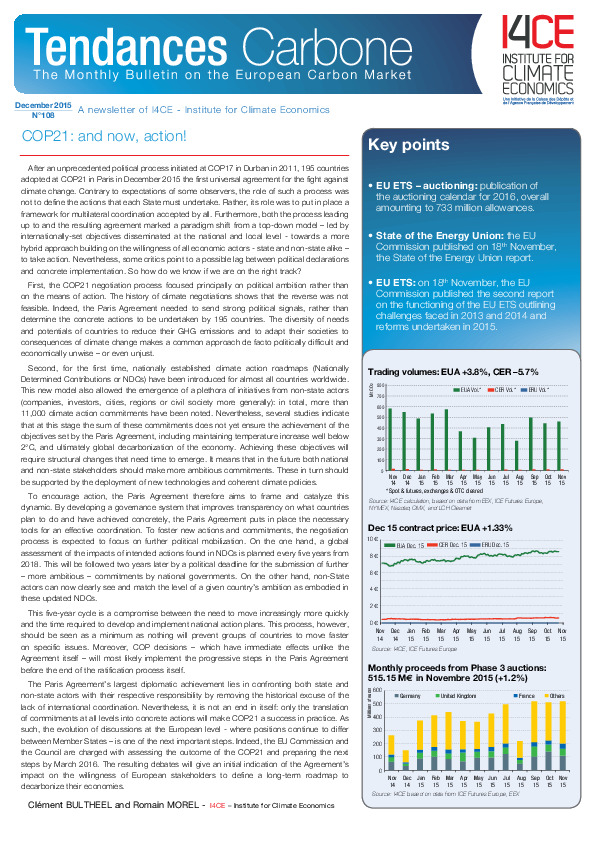COP21: and now, action!
After an unprecedented political process initiated at COP17 in Durban in 2011, 195 countries adopted at COP21 in Paris in December 2015 the first universal agreement for the fight against climate change. Contrary to expectations of some observers, the role of such a process was not to define the actions that each State must undertake. Rather, its role was to put in place a framework for multilateral coordination accepted by all. Furthermore, both the process leading up to and the resulting agreement marked a paradigm shift from a top-down model – led by internationally-set objectives disseminated at the national and local level – towards a more hybrid approach building on the willingness of all economic actors – state and non-state alike – to take action. Nevertheless, some critics point to a possible lag between political declarations and concrete implementation. So how do we know if we are on the right track?
